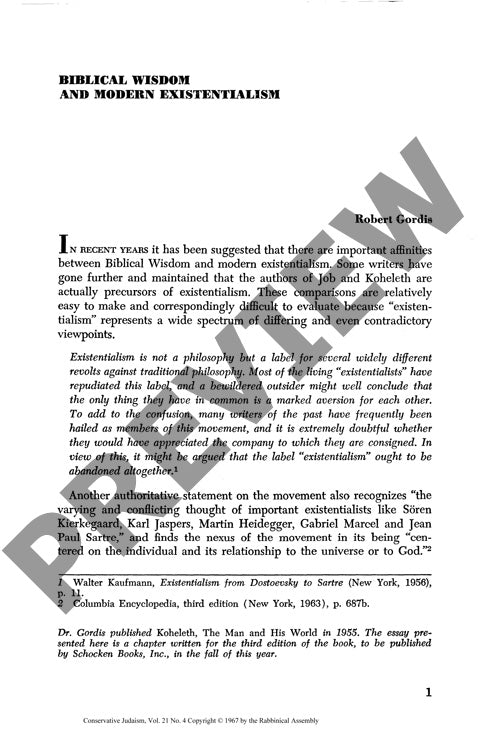Bibilical Wisdom and Modern Existentiali
Couldn't load pickup availability
Are ancient Hebrew wisdom texts truly forerunners of modern existentialism? Despite surface parallels between Biblical wisdom literature and existentialist philosophy, particularly in the books of Job and Ecclesiastes (Koheleth), deeper analysis reveals crucial distinctions. Through comparative textual analysis examining key existentialist themes—the distrust of reason, centrality of individual existence, and preoccupation with mortality—Gordis uncovers how these ancient texts diverge fundamentally from existentialist thought. While both traditions challenge conventional religious explanations and emphasize individual experience, Biblical Wisdom maintains an unwavering conviction in divine purpose and meaning, even when that meaning eludes human comprehension. Unlike existentialism's characteristic despair and vision of an absurd universe, Job and Koheleth affirm life's inherent value and advocate joyous acceptance of divinely ordained existence. The research demonstrates how Biblical Wisdom charts a "via tertia"—a third way between simplistic religious affirmations and existentialist negations—offering modern readers a worldview that upholds human dignity without demanding intellectual surrender, anchored in faith in ultimate divine purpose despite human limitations in understanding it.

More Information
-
Physical Description
-
Publication Information
Published 1967
ISBN
-
Publication Credits
Robert Gordis

